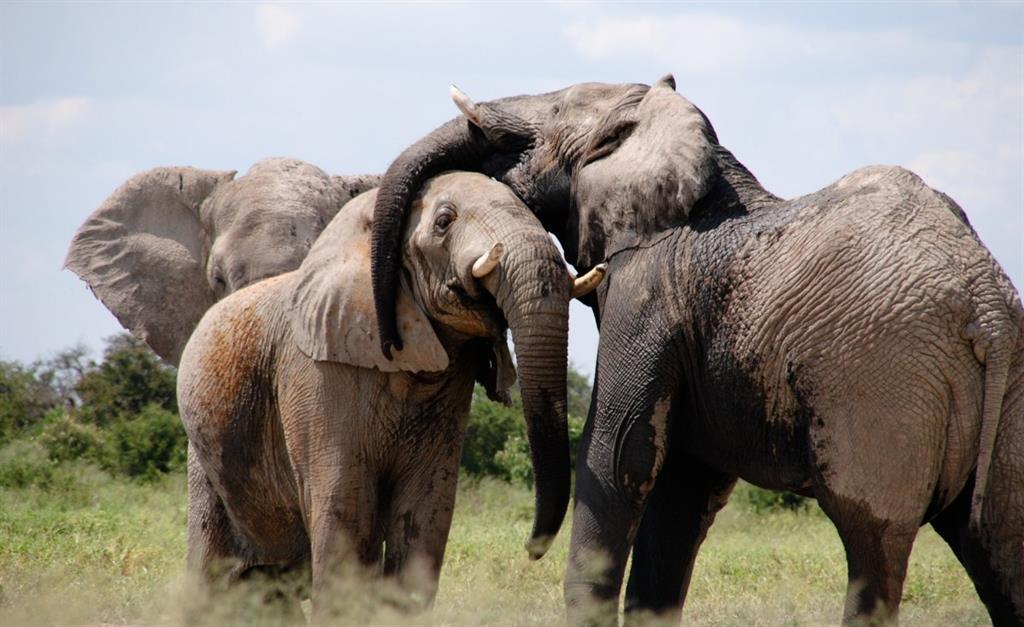Wildlife conflict scheme must include infrastructure damage
ELLANIE SMIT
WINDHOEK
The impact of human-elephant conflict on both communal and freehold land is severe and needs corrective action.
This is according to Dr Malan Lindeque, former executive director of the environment ministry. He was speaking at a recent workshop of the National Elephant Conservation and Management Plan.
The Human-Wildlife Conflict Self Reliance Scheme currently does not cover the cost of infrastructure damage, not does it include freehold farms or damage to kitchen gardens. “The main damage on freehold land is to fencing and water infrastructure, with annual maintenance costs exceeding N$200 000 in some areas,” said Lindeque. He said one of the proposed strategies for the management plan is that the Human-Wildlife Conflict Self Reliance Scheme should include the cost of infrastructure damage. “The big question, however, is whether the scheme can include freehold farms.”
He added that affected farmers incur high costs annually in repairing infrastructure and significant losses to farm production.
“Effective mitigation against elephants on commercial farms is technically possible, but funding support is needed.”
Prevention better than cure
Lindeque said the four hotspots for elephant-human conflict are Kamanjab/Otjikondo and Ugab/Omatjete in the north-west, and Kavango/Mangetti and the protected areas of Nyae Nyae and N#a-Jaqna in Kavango East
He further said that many rural people are not effectively preventing conflict with elephants, mainly because they do not know which methods to use. This means that traditional knowledge is not being transmitted. Lindeque added that technical solutions should be applied, such as elephant-proof fencing, protection of water infrastructure, gardens and crops, replacing diesel pumps with solar pumps and expanding the use of “chilli fences”.
Community involvement
Environment minister Pohamba Shifeta said elephant conservation cannot happen without involving the people that live close to them.
“While elephants are part of our African heritage and are revered by many communities, they also exact a significant toll on rural communities. In different regions, elephants damage water installations, infrastructure, gardens, livestock and crop farming. They are thus threatening the livelihood security of many communities and individual small farmers.” He said it is quite extraordinary and highly commendable that rural communities and commercial farmers have been as tolerant as they have been and increasingly adapted their farming practices towards co-existence with elephants. Shifeta however said that some conflicts remain, particularly in the Kalkfeld, Vingerklip, Omatjete, Kamanjab and Grootfontein farming areas. Lindeque pointed out that the elephant population in north-western Namibia has been vulnerable to drought and therefore human-elephant conflict there has declined in recent years.
WINDHOEK
The impact of human-elephant conflict on both communal and freehold land is severe and needs corrective action.
This is according to Dr Malan Lindeque, former executive director of the environment ministry. He was speaking at a recent workshop of the National Elephant Conservation and Management Plan.
The Human-Wildlife Conflict Self Reliance Scheme currently does not cover the cost of infrastructure damage, not does it include freehold farms or damage to kitchen gardens. “The main damage on freehold land is to fencing and water infrastructure, with annual maintenance costs exceeding N$200 000 in some areas,” said Lindeque. He said one of the proposed strategies for the management plan is that the Human-Wildlife Conflict Self Reliance Scheme should include the cost of infrastructure damage. “The big question, however, is whether the scheme can include freehold farms.”
He added that affected farmers incur high costs annually in repairing infrastructure and significant losses to farm production.
“Effective mitigation against elephants on commercial farms is technically possible, but funding support is needed.”
Prevention better than cure
Lindeque said the four hotspots for elephant-human conflict are Kamanjab/Otjikondo and Ugab/Omatjete in the north-west, and Kavango/Mangetti and the protected areas of Nyae Nyae and N#a-Jaqna in Kavango East
He further said that many rural people are not effectively preventing conflict with elephants, mainly because they do not know which methods to use. This means that traditional knowledge is not being transmitted. Lindeque added that technical solutions should be applied, such as elephant-proof fencing, protection of water infrastructure, gardens and crops, replacing diesel pumps with solar pumps and expanding the use of “chilli fences”.
Community involvement
Environment minister Pohamba Shifeta said elephant conservation cannot happen without involving the people that live close to them.
“While elephants are part of our African heritage and are revered by many communities, they also exact a significant toll on rural communities. In different regions, elephants damage water installations, infrastructure, gardens, livestock and crop farming. They are thus threatening the livelihood security of many communities and individual small farmers.” He said it is quite extraordinary and highly commendable that rural communities and commercial farmers have been as tolerant as they have been and increasingly adapted their farming practices towards co-existence with elephants. Shifeta however said that some conflicts remain, particularly in the Kalkfeld, Vingerklip, Omatjete, Kamanjab and Grootfontein farming areas. Lindeque pointed out that the elephant population in north-western Namibia has been vulnerable to drought and therefore human-elephant conflict there has declined in recent years.





Comments
Namibian Sun
No comments have been left on this article